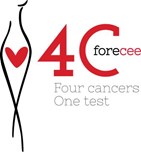We actively contribute to ambitious, publicly funded projects driven by the common goal of advancing the life sciences through genomics-based research. The company has years of experience in delivering solid sequencing data to collaborators across various industry sectors.
In conjunction with renowned organisations ranging from small- and medium-sized enterprises to academic institutions, Eurofins Genomics helps deliver the leading expertise and the sequencing capabilities that are needed to address some of today’s most important scientific and technical challenges.
Your strong partner for publicly funded projects
We are constantly looking for new challenges and strive for improving existing methods to hit the needs of your projects. This makes us a perfect, reliable partner for challenging publicly funded projects where experience and reliability is required.
We have expertise in a variety of fields:
We offer a wide range of services such as sequencing of any DNA or RNA sample, DNA/RNA isolation from a wide range of samples, SNP-detection, oligo/gene synthesis, genotyping, exome and gene specific enrichment followed by sequencing, whole genome sequencing (WGS) and de-novo assemblies, epigenetic studies, microbiome and metagenome analysis and customized BioIT services.
With our Illumina and PacBio platforms we provide access to cutting-edge technologies and with a high level of automation in our ISO-17025, GLP and GCP accredited laboratories, we are the perfect partner to participate in large publicly funded projects. All projects are supervised by dedicated project managers with scientific background.

FORECEE - identifying the risk of women’s cancer
Eurofins GATC Biotech is a major collaborator in the FORECEE/4C research project, funded by the European Union (Horizon 2020 research and innovation programme and the Eve Appeal). The project, led by University College London, aims at developing a screening process for ovarian, cervical, endometrial and breast cancers. Eurofins GATC Biotech helps advance the project by performing the analysis of vaginal microbiomes of 3,600 patients. DNA isolated from pap smears are sequenced at Eurofins GATC Biotech to precisely determine the bacterial composition of the samples.

HUMAN - Health and the Understanding of Metabolism, Aging and Nutrition
HUMAN aims to generate unique humanised mouse models to study metabolic disease and longevity. Eurofins GATC Biotech contributes to this project by characterising the phenotype of humanised mouse models and induced pluripotent stem cells (iPSCs) by transcriptomics and epigenomics analysis. Cytosine methylation and histone modifications, two important regulators of gene expression, are investigated by state-of-the art NGS technologies, e.g. RNA-Seq, ChIP-Seq and RRBS. The project is funded by the European Union Seventh Framework Programme for Research and Innovation (FP7).
Sybil - Systems biology for the functional validation of genetic determinants of skeletal diseases
SYBIL is focused on the functional validation of genetic determinants of common and rare skeletal diseases. The project aims to enhance our mechanistic understanding of disease processes and age-related changes, as well as to deliver new and validated therapeutic targets. The internationally collaborative research project is funded by the European Union Seventh Framework Programme for Research and Innovation (FP7).
Eurofancolen - clinical study to cure Fanconi anemia patients
The goal of the EUROFANCOLEN project is the development of a multicentre Phase I/II gene therapy trial for Fanconi anemia patients. Eurofins GATC Biotech is currently developing an assay to diagnose Fanconi Anemia, as well as to monitor vector insertion sites through the sequencing of therapy vectors. EUROFANCOLEN is funded by the European Union Seventh Framework Programme for Research and Innovation (FP7).
Net4CGD - Net for Chronic Granulomatous Disease (CGD)
Net4CGD is committed to the development of a gene therapy approach to treat CGD. Eurofins GATC Biotech contributes to this project by performing customized target enrichment and next-generation sequencing of vector integration sites. Net4CGD is funded by the European Union Seventh Framework Programme for Research and Innovation (FP7).